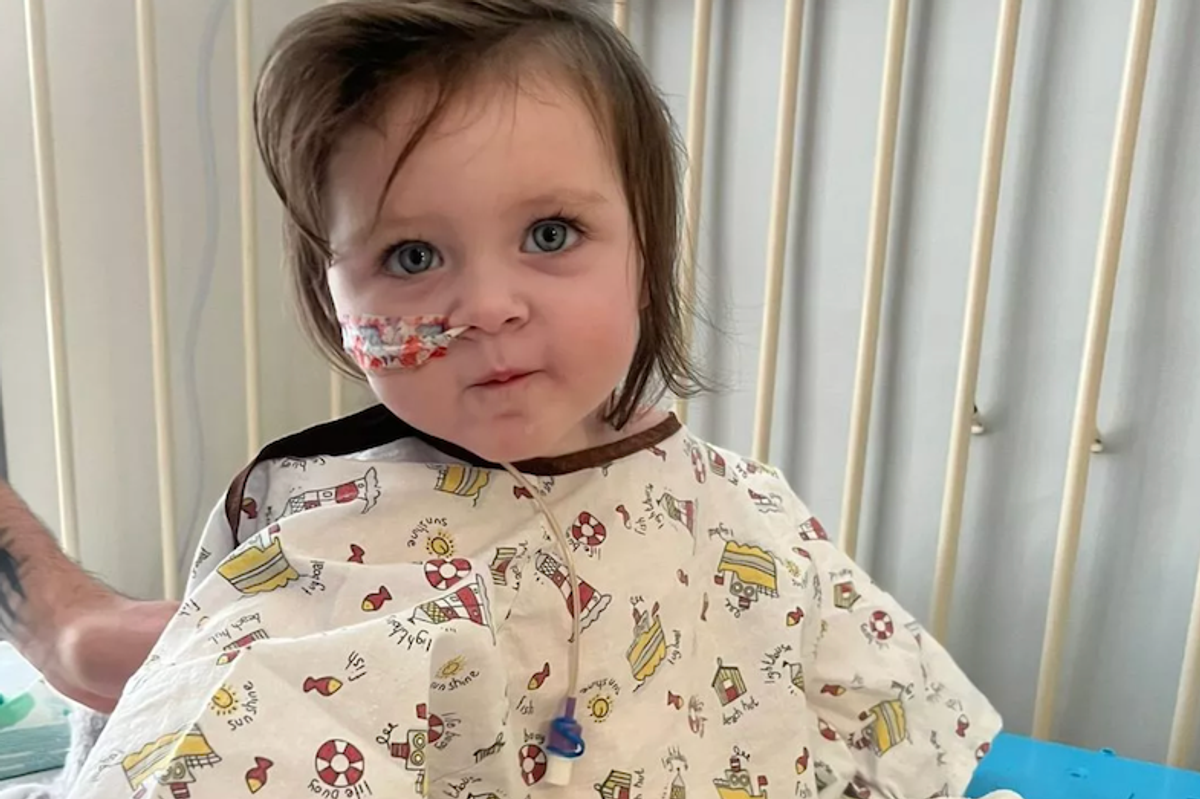Irish girl with rare heart condition was given 24 hours to live. Six months later, she's home.
Callie is the only person in the UK to be diagnosed with the genetic condition.

Little Callie was given 24 hours to live. Now she's enjoying life back home.
For her first year of life, Callie McKinney of County Down, Northern Ireland was a healthy, happy baby. Then she had a heart attack out of nowhere.
Doctors at the hospital told her parents that she suffered extensive brain damage and gave Callie about 24 to 48 hours left to live. After over six months of treatment, she’s finally back home and seemingly living the normal toddler life.
"We were told that Callie would be severely brain damaged as a result of what she went through and would essentially have no quality of life going forward,” said Caitlin Turner, Callie’s mom, to Belfast Live. “But the resilience that she has shown is nothing short of a miracle as now she is laughing, sitting up, eating and learning to walk and finally getting back to the normal life that she used to have.”

The online comments have been encouraging:
“Callie is a wee fighter. 👏👏👏💙”
“What a beautiful smile, wishing her all the love in the world.”
“Great to hear some good news for a change.”
Callie was diagnosed with inorganic pyrophosphatase 2 (PPA2), a very rare genetic condition that triggers cardiac arrest suddenly, usually triggered through viral infection or ingestion of alcohol. In order to provide instant help should she experience a cardiac issue, Callie had a defibrillator surgically implanted in her heart.

Due to its rarity, there haven't been many studies regarding PPA2. PPA2 is so rare that Callie is currently the only person in the United Kingdom diagnosed with the affliction. The only reason Callie’s PPA2 was diagnosed was due to one of the doctors performing a genetics test while Callie was fighting for her life. Had Callie died, her cause of death would’ve been classified as sudden infant death syndrome (SIDS).
An August 2023 study of PPA2 at the Icahn School of Medicine at Mount Sinai, New York had trouble collecting data. Not just because the condition is so rare that they had such a small sample size to study the condition, but out of 59 people diagnosed with PPA2 in the study, only 10 were living. Usually PPA2 isn’t diagnosed until it is too late or a young person has survived a cardiac event like Callie did. PPA2 usually goes undiagnosed unless a genetic test is done to children who had a sibling that passed away from it, such as with two children in the United States and Australia.
These survivors are fighting and it’s inspiring that they continue to make the most out of life, especially since they risk triggering a heart attack from even minor viral infections. It reminds those that aren’t diagnosed with PPA2 take certain things for granted as they continue to fight to enjoy each bit of laughter they can experience.


